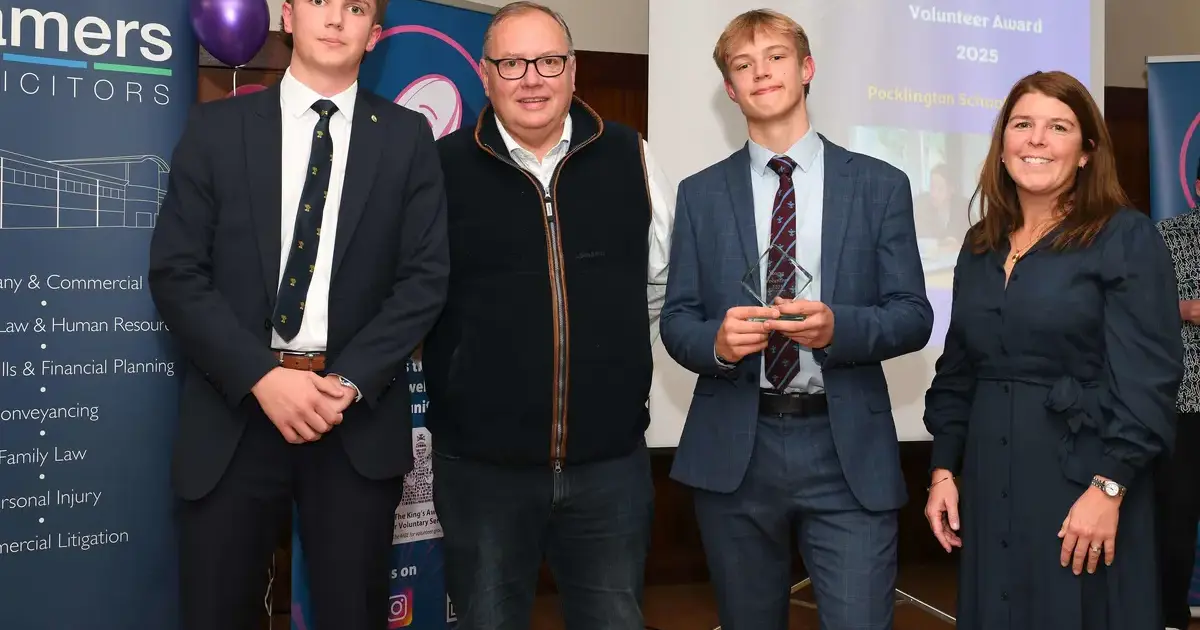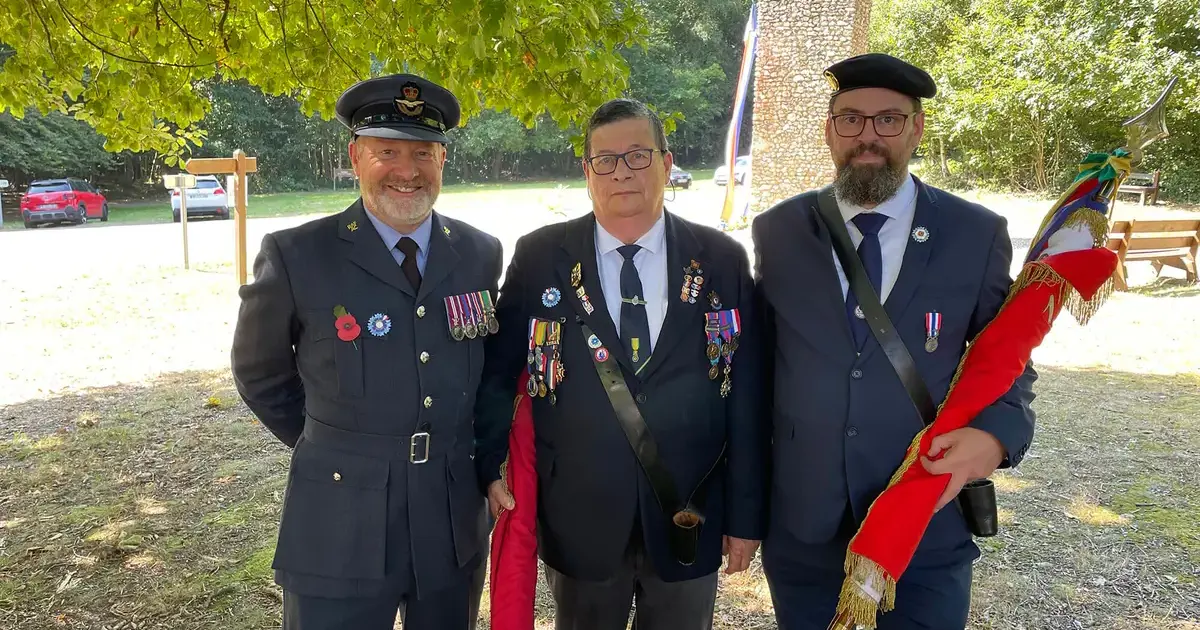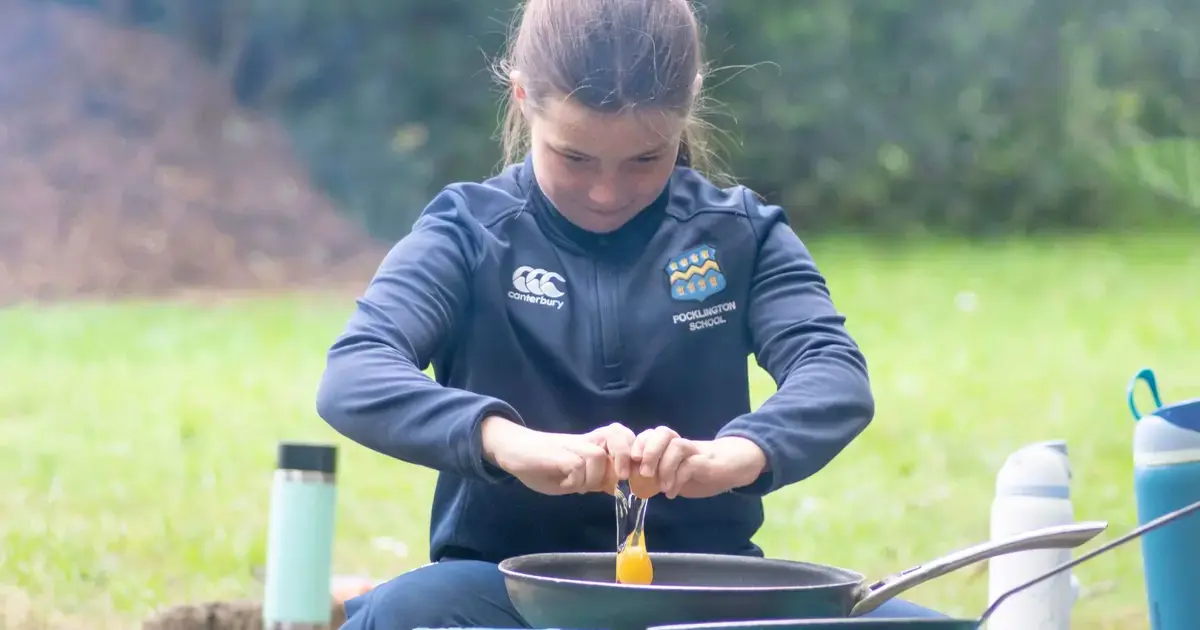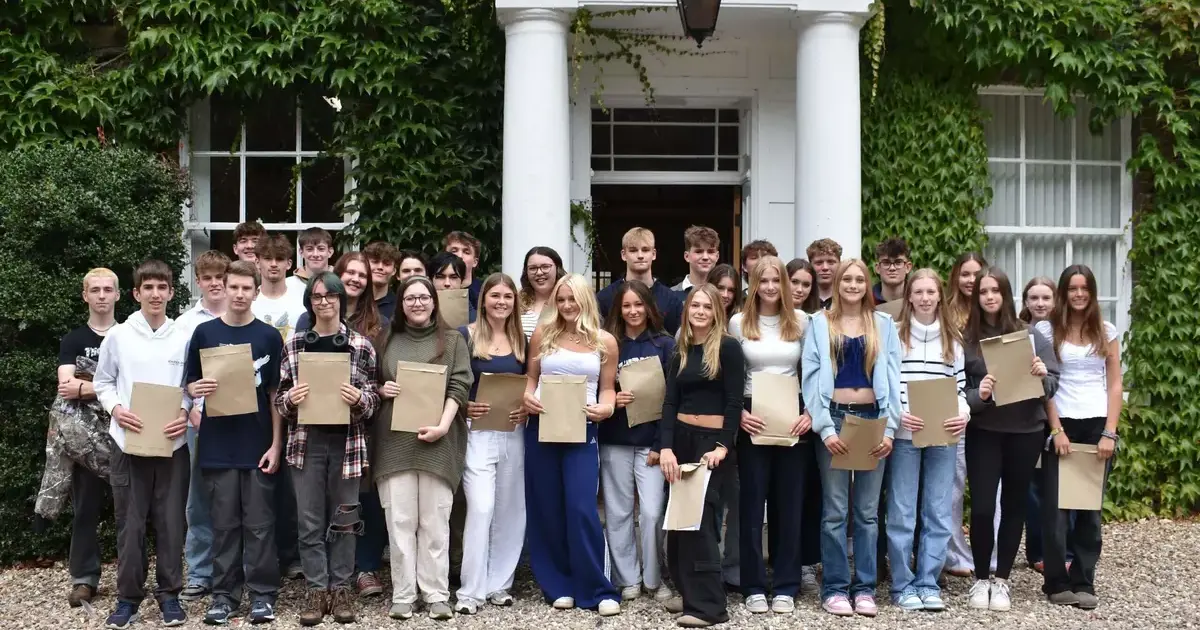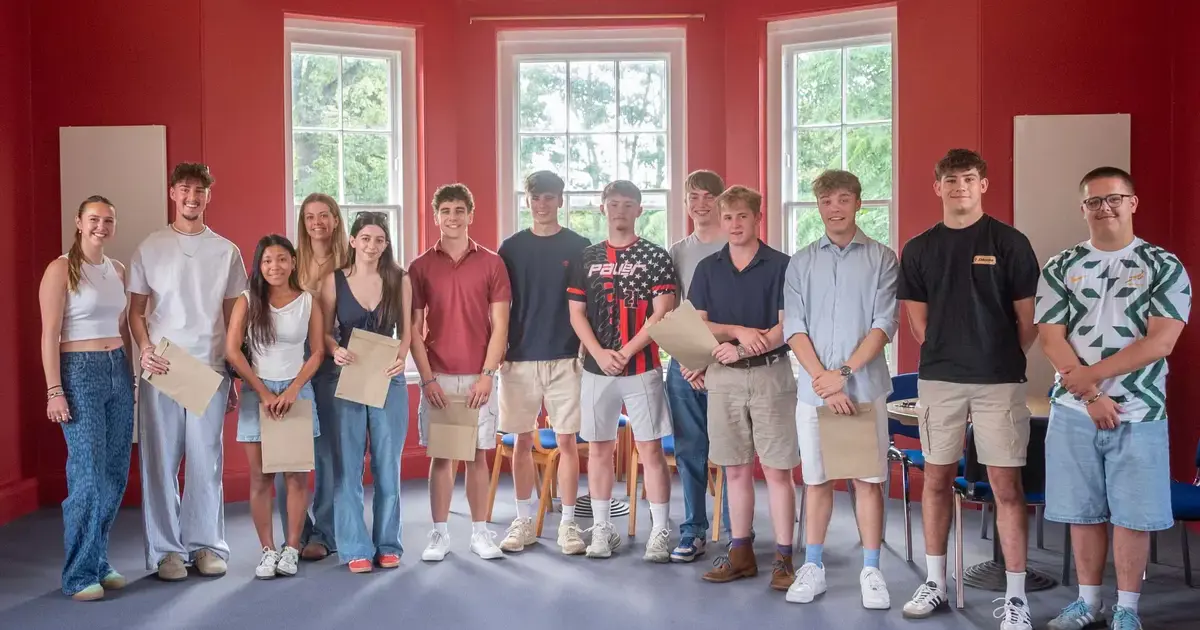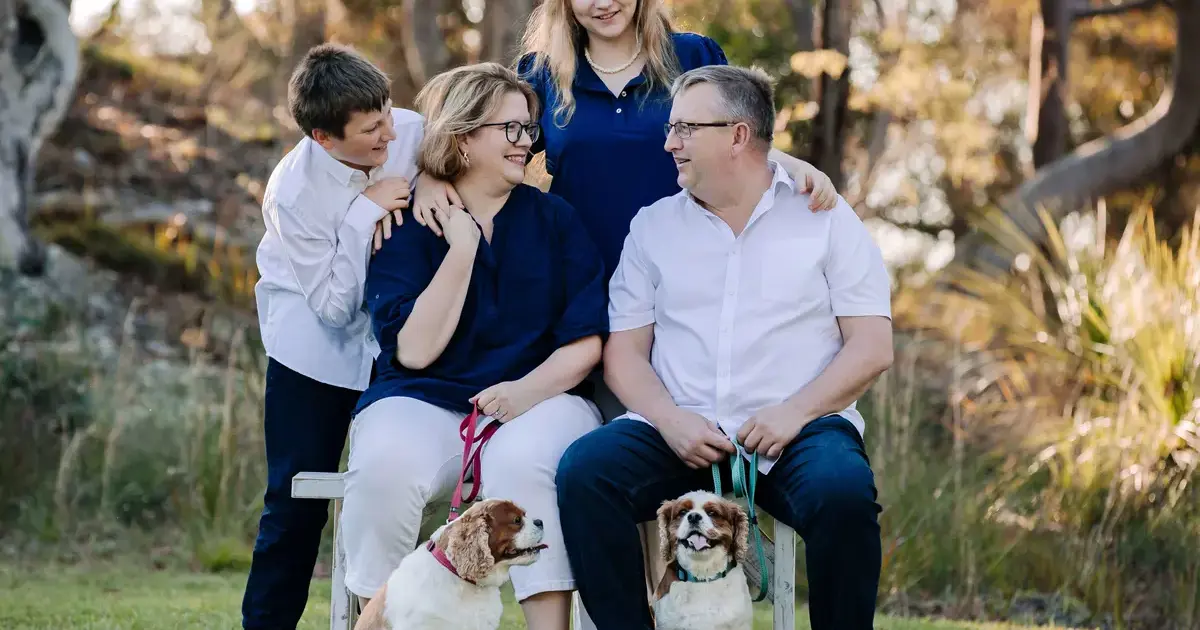Meet Becky Lovelock, Our Next Head

Becky Lovelock will become Head of Pocklington School in September 2025. Becky is currently Deputy Head Academic at Sydney Grammar School, one of Australia’s leading independent schools, and brings a wealth of experience across state and independent sectors, including co-educational, boarding and day schools.
A Mathematics graduate from the University of Bristol with a Master’s in Teaching and Learning from the University of Oxford, Becky is a passionate educator with a strong commitment to holistic education and community.
Her appointment as the first female Head in the School’s 500-year history marks an exciting new chapter. In this interview, Becky shares what drew her to Pocklington, her leadership values, and her hopes for the future.
Q: What attracted you to Pocklington, and what values within the school particularly resonated with you?
A: I have a deep attachment to schools with proud histories and was particularly struck with the beautiful balance that Pocklington strikes between that connection to tradition and a future focus. On getting to know the School better, one of the first things I loved was the huge emphasis it places on a holistic education. Many schools boast that everyone in their community is known and valued, and that they develop the whole person, but my sense of Pocklington was that this was true at its very core without the boasting. In fact, you could even argue that we don’t boast about it enough! Once I was fortunate enough to be invited to interview I could see it woven through all the little actions and interactions on a daily basis. Sitting in reception on arrival, I observed how each pupil was warmly greeted and known. Walking around the school with various staff members and pupils I could feel the warm and friendly way they interacted as though they were all part of a big village, with no pretence. And finally, the obvious dedication and expertise of the staff who were clearly so keen to go above and beyond for the good of the School, whilst being candid and open.
Q: This appointment marks a historic moment for Pocklington School. How did you feel when you were offered the role- aware that you would become its first female Head in over five centuries?
A: When I was offered the role I was sitting by the beach at Scarborough with both my parents who had been staying with me in East Riding through the interview process, and it was a very special moment. To be honest, the initial feeling was one of relief, as I had no idea how I was going to go back to reality if I had not been offered the role. In getting to know Pocklington School through the application process and spending time with the pupils and staff, I had fallen in love with it, and would have been heartbroken to have to walk away. Then, of course, excitement took over, closely followed by lots of lists of what I have to do, what I should probably do, and what I would like to do. I do enjoy a good list! To be honest, the fact that I was becoming the first female Head was not something I had appreciated, until others began pointing it out to me. I trust and believe in the process and that I was the best person for the role, irrespective of gender, although it is always nice to be seen as a trailblazer. Whilst I am the first, I trust I will not be the last.
Q: Do you see your appointment as a symbol of broader progress in the independent school sector – and how do you hope to inspire the next generation of female leaders?
A: I do feel and hope that we are moving to more of a meritocracy, where each individual is judged on the basis of their capabilities, character and experience rather than other aspects of their profile. Having said that, I use the phrase “are moving to” rather than “have moved” as there is still some way to go. The ratio of female Heads to male Heads among independent schools in the UK is still relatively small, however the ratio of female to male teaching staff is not. I do not believe that it is the case that the male teaching staff are better qualified or more motivated to seek promotions than the female teaching staff, so something seems imbalanced. However, the best thing I can do to inspire the next generation of female leaders is to do my job well, whilst living a balanced life, and to speak openly and honestly about my experiences, so I’ll give that my best shot. And of course ensure that Pocklington School itself continues to run on a meritocracy basis in the same way my appointment was made.
Q: Can you tell us a little about your own educational background and professional journey to this point? Were there pivotal moments or mentors that helped shape your leadership?
A: Teaching runs in my family. My father was a university lecturer, his mother was a teacher, and my mother was a teacher, so education was always seen as a priority. I think my pivotal moment in terms of teaching came when I was 14, and a patrol leader for a group of girl guides on a night hike. My patrol was mostly younger girls, and whilst I had always been terrified of the dark to that point, they were very vocal about how terrified they were and how they didn’t want to go on the hike. Over the course of the hike, I had to put my own fears aside and focus on jollying them along. By the end of the evening, they were having a ball and had forgotten all about being scared, as indeed had I. So I discovered from that relatively young age that I was happiest and most fulfilled when I was doing meaningful things that benefitted others rather than focussing on myself.
Throughout my professional career I have worked at a wide variety of schools: state and independent, girls, boys and co-educational, boarding and day, and in coming to Pocklington, I am returning to my favourite type of school – coeducational, a boarding environment, an English country campus, with a focus on holistic education and community.
I’ve been incredibly lucky to have so many mentors over the years, and always try and absorb the expertise of those around me. Most recently in Sydney, Australia, I have been fortunate to be mentored by a number of inspirational Heads, including Tim Wright, former Head of Shore School and Elizabeth Stone, who a couple of years ago moved from being Head of Queenwood, Sydney, to become the first female Head of Winchester College. Both of them are brilliant at having really frank discussions, reflecting my own thoughts back to me, forcing me to think deeply about understanding the consequences of the decisions you make as a leader, and giving wonderful insights into how different situations can be approached.
Q: What is your overarching vision for the Pocklington School Foundation in the coming years?
A: I would like to see Pocklington School become more broadly renowned for the areas of expertise it already has, whilst exploring other opportunities to widen our reach. I want Pocklington to achieve outstanding results, but importantly, in a low pressure environment where everyone has a strong sense of proportion – a greenhouse, not a hot house. For our pupils to gain the confidence to be courageous, to seek and value truth, and to recognise the importance of trust in our family-centred and loving community. To be a place where young people are sad to leave us, but due the stimulating experiences and strong support we have provided them with, to be more than ready to launch into their next adventure.
Q: How will you balance tradition with innovation in an institution so steeped in history?
A: It is interesting that people often associate the word “tradition” with a rather old-fashioned or static view of the world, and can view a school with a long history as such. When Pocklington was first founded in 1514 by John Dolman, he would have been seen as an innovator. Indeed, I suspect that a number of people might even have suggested he was being too progressive or even radical. So Pocklington School’s history and tradition is arguably one of being continually innovative at any given time. Of looking at the current educational scene, and considering what is best and will give the best possible opportunities to the young people of each era throughout its long and successful existence. That is exactly what I plan to do.
Q: How do you approach preparing young people not just academically, but for life beyond school in an unpredictable world? Education is facing enormous shifts. What are the most pressing challenges schools like Pocklington face today, and how do you plan to address them?
A: The only thing we can be sure about when we think of the future is that it will be different, and it is our responsibility and privilege to prepare our pupils to not just survive but thrive in changeable circumstances. For them to be creators of the future, not just consumers. This can be achieved by emphasising the development of character attributes through all aspects of school life, where that character education pervades but does not dominate the activities themselves, so they develop strong character almost without realising.
We are indeed facing enormous shifts. Jonathan Haidt’s “The Anxious Generation”, which many have now read, talks not only about the significant impact of technology on young people, but importantly also the impact of them not taking measured risks and being allowed to fail in order to eventually succeed. One of the best things that can happen to a young person is actually to fail, but importantly in a low risk, supportive environment, where they have the opportunity to learn to get up and try again. The pastoral system of any school has a huge role to play here, and a system that proactively develops skills such as resilience and optimism, in addition to supporting problems as and when they occur, is vital. I am of the firm belief that alongside developing a strong academic program, the sporting and cocurricular program should be carefully constructed to focus on developing complementary knowledge, skills and attitudes appropriate for future success – such as oracy, performance, teamwork, physical fitness alongside a deep understanding that what you do every day matters more than what you do once in a while – that excellence is not an act, but a habit.
Q: What role do you see independent schools playing in terms of social impact and inclusivity in the next decade?
A: It is absolutely essential that independent schools are trail blazers in these areas. We have a moral imperative to not only do the work ourselves, but almost more importantly, set a demonstratable example to our young people so that they go on and take that leadership to their future communities. Working in partnership with our families, we want our pupils to develop into aspirational individuals who not only stand firmly on their own two feet, but pull others up to stand alongside them.
Q: What are the qualities you believe every modern educational leader should possess, and how would you describe your leadership style?
A: The main intention behind my leadership style is to empower people to see what they are capable of, and to feel “We can do this together” and I aim to inspire people to want to learn and contribute beyond any perceived limitations.
One of the most important qualities I believe any educational leader (or indeed any leader) needs to possess is adaptability, and I hope and believe I have that quality. Adaptive leadership has a number of characteristics, but at the heart of it is the ability to develop mutual trust, with your organisation and with the community you work with. What sits behind that is an ability to understand different perspectives, what drives people to act as they do, and to work with that understanding to find areas of commonality. Particularly important is the insight to appreciate the consequences of any decisions you make – both the intended consequences and the potential unintended consequences. Finally, to have the character to respond carefully, even in urgent situations, rather than to react.
Q: Stepping into such a big role can bring pressure as well as pride. How do you personally stay grounded and motivated in your work?
A: Often in leadership theory people talk about making sure you spend time on the balcony, not just on the dancefloor. It can be too easy to get caught up in the details and not consider the big picture. For example, I like to regularly walk around the school site and make time to pause and watch, and consider what others might see. Like William Henry Davies said: “What is this life if, full of care, we have no time to stand and stare.”
Q: Outside of education, what inspires you?
A: I’m very fortunate to have an amazingly supportive husband and family. My husband, Charlie, and my two children, Em and Max, make up my immediate family. Our family of four is the perfect example of the whole being greater than the sum of its parts.
I’m a country person, and love walking and drinking in the scenery, along with my two dogs. My parents are fabulous gardeners, particularly growing vegetables, and whilst I couldn’t begin to compete with what they achieve, I love being in the outdoors whatever the weather. I also get a sense of comfort from small hobbies that are quite therapeutic, such as cross-stitch, baking and handwriting letters to family and friends.
Q: What’s one piece of advice you received early in your career that still guides you today?
A: “Everyone you meet is fighting a battle you know nothing about. Be kind always.”
Q: If you could speak to the first Head of Pocklington from 511 years ago, what might you say – and what do you think they would make of the school today?
A: I would love to talk to them about how forward-thinking they were for their time, how education was seen back then and the challenges or opposition they faced when taking a risk by starting the school. I think they would be so proud that the innovation they began has continued through the generations to influence thousands of Old Pocklingtonians, and would be excited to hear about our plans for the coming years.
Q:What legacy would you most like to leave at Pocklington when future generations look back at your tenure?
A:It is difficult to think in terms of legacy, as I think that is for others to judge. In the fullness of time, historians will determine how my tenure will be viewed. But my firm intention that this next chapter for Pocklington School will be one of growth, positivity and continuing the long tradition of innovative education.













